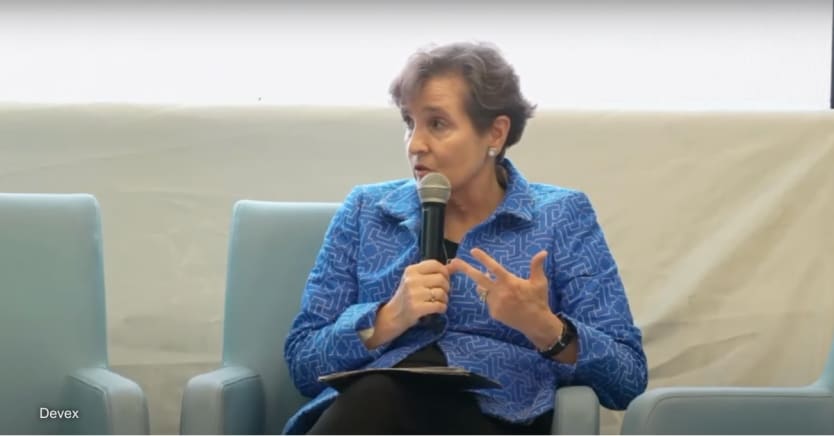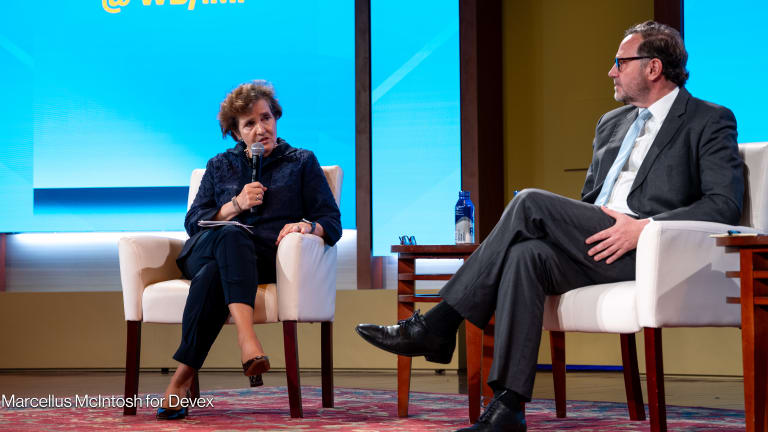
A new U.S. government initiative is going to try to use up to $80 million in grant funding to bring in $1 billion in private-sector investment to ramp up climate financing in emerging markets.
Through Climate Finance Plus, announced Wednesday, the Millenium Challenge Corporation and the United States Agency for International Development will work with countries to scale up green financing in low- and lower-middle-income countries.
“The investment capital in the world does not go to all the countries that are facing the most high degree of vulnerability to climate change. That's what has to change,” MCC CEO Alice Albright said at the Devex @ COP 27 event in Sharm el-Sheikh, Egypt, on Thursday.
Official development assistance, or donor funding, including development banks, can only provide a fraction of the money needed to support the countries most exposed to climate change, she said.
“We need to figure out how to use public money to crowd in more private money and figure out how we can structure transactions,” she said, adding that we also need to explore what adaptation models can be financed and what types of projects have the necessary revenue streams to attract private capital.
While the solutions include complex operational and structuring questions, it is critical to think differently about how to finance climate-related needs, Albright said.
“If somebody says, ‘Well, is $50 or $80 million going to really make a difference?’ — that's not the right question. One of the problems we're trying to think about is that many countries that we work with at MCC don't really have all the right mechanisms in place to essentially create a market to attract capital,” Albright said. “So this is the regulatory systems, the reporting systems. How do you structure transactions? How do you build a pipeline of transactions?”
That’s what Climate Finance Plus will aim to tackle. MCC and USAID will work to expand the technical tools available to enable the use of green bonds and other blended finance products, starting in Indonesia, Mozambique, and Zambia. The agencies believe that by doing so, they can help leverage, or attract, billions of dollars for climate finance, they said in a statement.
The aim is to “create a much more systemic approach to this question, rather than simply looking at a transaction or two,” Albright told Devex.
Already many of the countries MCC works with want to address issues tied to climate impacts, she said, pointing to the examples of Mongolia and Timor Leste where MCC is working to address water issues.
Albright noted that the program was initially launched under a different name, the somewhat clunkier Green Finance Pilot Program, “which didn't quite roll off of everyone's tongue,” she quipped.
So it was changed to Climate Finance Plus at the U.N. Climate Change Conference.
“We gave it a better name,” she said. “We're not changing it again.”








